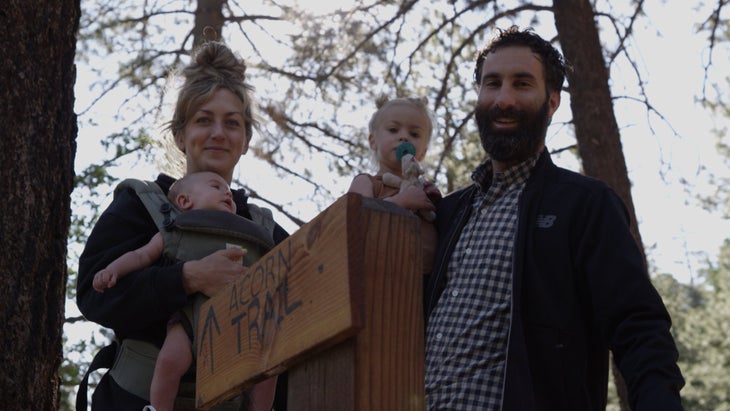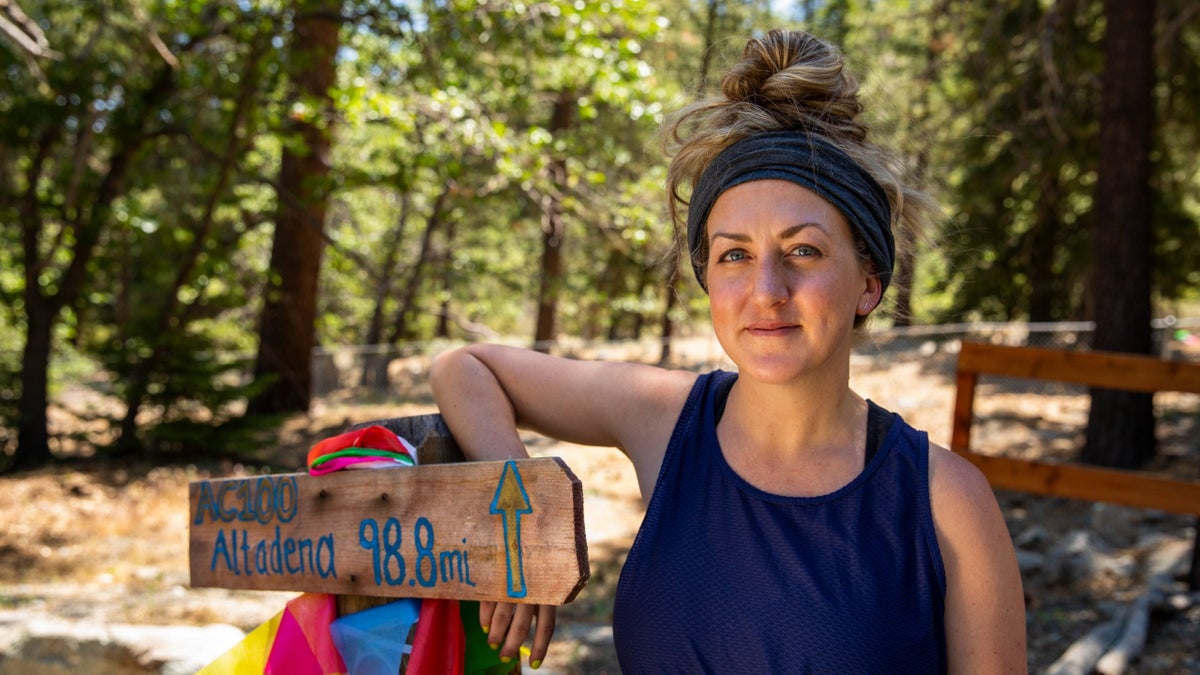No products in the cart.
Outdoor Adventure
Running For All the Right Reasons
Distance can be a funny thing. Back in 2009, Katie Grossman was working at a running store and training for a marathon. When the subject of ultras came up, a co-worker asked her, What’s another five miles? A few days later, after she crossed the finish line of her first 50K, her co-worker then sent her a link to a 50-miler. Two months later she ran her first 50-mile race. He sent her another link—this time for a 100-mile race. By the end of the year she’d run her first 100 and was thoroughly hooked on long, grueling days on the trail with only her mind and body to contend with.
Twelve years later, her link-sending former co-worker is now her husband, ultrarunner Dom Grossman, and Katie Grossman has had wide success racing long distances. So far in her career she’s run 40-plus ultras, winning more than half a dozen of them, and finished eight 100-milers (including her favorite race of all time, the Hardrock 100).
“I really, truly love to run in the mountains. This is what I want to do,” says Grossman, who now lives northeast of Los Angeles in a pine-covered valley in the San Gabriel Mountains with Dom and their two young kids and works as a creative director and copywriter. Often in the throes of long, tough distances on the trail, it’s possible to open a part of yourself that’s available only in those conditions. People often compare it to a psychedelic experience—a deep, introspective knowing, a noticeable shift in perspective. “It has a way of reflecting back pieces of yourself. There’s a feeling of flow, release, and wholly being in the moment that nothing but trail running provides.”
But the last time Grossman went on a long run was almost a year ago. And she hasn’t raced in almost four years. The closest she’s gotten to ultra distances is driving 2.5 hours back and forth to physical therapy for pelvic problems that started when she was pregnant with her first daughter and then came back while she was pregnant with her second last year. Right when she was healed, and could finally get back to running, she learned she had an invasive tumor in her abdomen.
It’s been a challenging few years. “One of my biggest fears has always been the running-for-mental-health conundrum. If running is the way I work through my biggest problems and stressors, what happens when the problem itself is not being able to run?” says Grossman. “I realized early on in the process that I had to find another outlet, or it was going to crush me and everyone else in my orbit.”
She knows because she’s been there before. In her early running days, her self-worth was inextricably wrapped up in running, making periods of injury even more difficult to get through. “There was definitely an addictive quality,” she says. She’d get up at 5 a.m. and run, then run at lunch, and then run after work. She was high on the power of being able to do that. “I remember at some point being in the car and crying because I didn’t want to run but felt like I had to. I just don’t have those days anymore.”

While her relationship with running did eventually get to a healthy place, it’s still difficult to cope with not being able to do what she loves. Focusing on the positive memories helps—the golden light from a ridgetop or the smell of pine trees or moments from the Hardrock 100—but it hasn’t been easy. In the years she couldn’t race, she watched most of her sponsors disappear. “I think that was easier than them having to address it,” she says. “I thought that would happen with New Balance but they’ve stood by me.”
I needed to focus on taking on one step at a time because when I do that I’m actually really happy with the progress.
As someone who thrives by setting big goals, she’s realized that that’s what she needs to do now, even if her definition of “big” has temporarily shifted. Right now, she tells herself it will be great when she can run for an hour without pain. “I needed to focus on taking on one step at a time because when I do that I’m actually really happy with the progress.”
And while her goals are smaller right now, she still dreams of a big one in the future: running the Hardrock 100 again. “It’s what I want more than anything,” she says. But it’s more than that: Grossman also plans to be the woman who’s in her seventies and still racing, so she knows she can get through a few hard years if it means she’s got a future of mountaintop sunsets ahead. “I have no idea how long it’s going to take me to rehab, but I do think that running these races is there for me on the other side of this.” Until that happens, she’s letting the powerful and profound moments she’s collected over years on the trail drive her forward.
About New Balance. We stand for something bigger than sneakers. We champion those who are fearlessly driven by their passions. We elevate sport. We do right by people and the planet. Together, we drive meaningful change in communities around the world. We Got Now.
Source link

